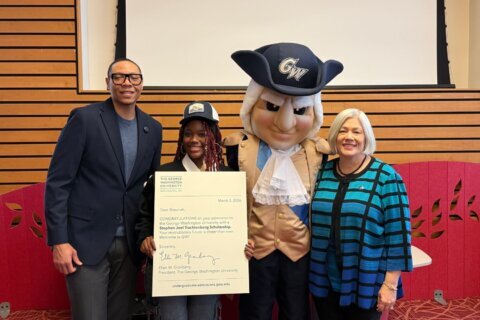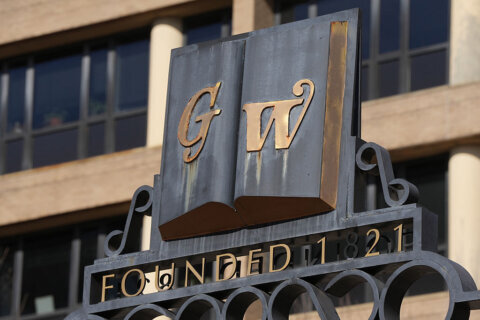Most public schools in D.C. are within 1,000 feet of a retailer selling tobacco products, according to a Stanford-led study.
“Tobacco products are everywhere,” said Matthew L. Myers, president of the Campaign for Tobacco-Free Kids.
In 30 major U.S. cities, an average of 63% of schools are within 1,000 feet of tobacco retailers. But D.C. is worse, Myers said, “at over 81%.” He added, “83% of (D.C.) kids live within two blocks of a tobacco store.”
Myers said kids still get ubiquitous messages that smoking is cool, and still the social norm, and that defeats efforts to reduce use of tobacco products. Myers called those products “a major cause of death and disease, a major cause of health disparity, a major reason African Americans and Latinos die of various diseases at higher rates than their counterparts,” and they are “literally everywhere in our city.”
“There is a direct link between kids seeing these products every day, and they do in the District of Columbia, and increased use of these products,” Myers said. “There’s also a direct link between making it hard for people to quit.”
Myers recommends a few solutions:
- Communities should call on gas stations and convenience stores to stop sales. “They will not go out of business. People will come into those stores and buy other products.”
- Parents should have frank discussions with kids about tobacco and flavored electronic cigarettes. “Families spending more time together is an opportunity to have those conversations.”
- Kids should urge parents to quit smoking. “There’s nobody better to get an adult to quit than their child … parents and kids who talk about these issues help each other.”
- Neighborhood groups should push to get tobacco sales out of stores closest to schools.
- Flavored products should be targeted by lawmakers because they’re preferred by younger smokers.
More than 50% of all kids who smoke cigarettes smoke menthol cigarettes; the rate is higher among African-American children at 70%.
Myers said the D.C. Council “needs to recognize that if it really cares about the health of our children and health inequity, it needs to pass the legislation banning all flavored tobacco products.”
The bill currently is still in committee, perhaps to be considered again when the council comes back from the August recess. You can see a February public hearing on the bill.
“Over 70 cities in California have banned all flavored e-cigarettes and other flavored tobacco products,” Myers said.
Within the last year, Massachusetts, Rhode Island, New York and New Jersey have banned the sale of all flavored e-cigarettes. Massachusetts also banned the sale of all menthol cigarettes.








